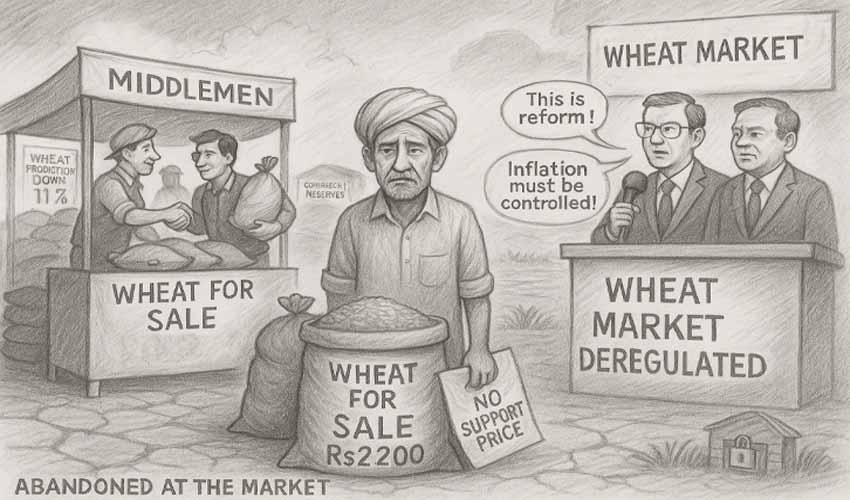As the world faces a growing number of international crises, from the drawn-out Russia-Ukraine war to the intensifying nuclear threat posed by Iran, one figure has re-emerged with a self-proclaimed mission: restore peace through bold diplomacy.
US President Donald J. Trump is once again positioning himself as the “only peace card” on the global table.
While his style has always been controversial, Trump’s foreign policy record is now being re-evaluated — not just by his supporters but even by some of his fiercest critics — as pragmatic, pressure-based diplomacy that delivered results.
His latest interventions, particularly in regard to the Ukraine-Russia conflict and nuclear talks with Iran, are stirring headlines and raising critical questions: Could Trump actually be the key to de-escalating some of the world's most dangerous standoffs?
Unlike the Biden administration’s consistent military aid to Ukraine, Donald Trump has taken a markedly different tone. In his speeches and interviews, Trump emphasizes negotiation over escalation.
“If I were president, this war would have never started,” he declared during a March 2024 rally, claiming his diplomatic rapport with both Vladimir Putin and Volodymyr Zelensky could bring about “peace in 24 hours.”
While such promises are met with skepticism, Trump’s team has reportedly engaged in backchannel discussions with Russian and Ukrainian figures.
According to The Wall Street Journal, aides close to Trump have been advocating for a tougher tone with Russia while simultaneously calling for a rethinking of endless arms shipments to Ukraine — suggesting instead a path to strategic ceasefire agreements.
Earlier this month, reports from Reuters and The Times confirmed that Trump had spoken with Putin by phone, urging him to halt strikes on Ukrainian civilian infrastructure. In response, Moscow reportedly agreed to pause airstrikes on critical Ukrainian energy grids — a decision confirmed by the Kremlin’s press secretary as a “temporary confidence-building step.”
Though critics argue the gesture is symbolic, Ukrainian officials did acknowledge a noticeable reduction in shelling on April 10 and 11. The brief lull opened the door to renewed humanitarian corridors in Kharkiv and Dnipro, allowing thousands to evacuate. While not a full ceasefire, it’s a tangible example of Trump’s back-channel diplomacy showing results.
Iran and nuclear question
Perhaps even more consequential are Trump’s quiet maneuvers in the Middle East. Despite having withdrawn the U.S. from the Iran Nuclear Deal (JCPOA) in 2018, Trump now appears open to renegotiating terms with Tehran — under strict new conditions.
In early April, the Times of Israel and The Guardian reported that Trump had sent a detailed letter to Iran’s Supreme Leader Ayatollah Ali Khamenei via Oman’s diplomatic channels, proposing a revamped deal: Iran must abandon uranium enrichment beyond 3.67%, agree to full IAEA inspections, and halt proxy operations in Lebanon, Iraq, and Yemen. In return, Trump offered partial sanctions relief and a pathway to normalized trade by 2026.
Talks in Muscat have resumed, with Trump ally and former Treasury adviser Steve Witkoff joining private negotiations alongside Omani and Qatari mediators. While Iran remains reluctant to relocate its uranium stockpile — a key U.S. demand — negotiators on both sides have confirmed that channels remain “active and serious.”
“Trump speaks the language of pressure,” said Mehdi Soltani, a former Iranian diplomat, speaking to Al Jazeera. “But he also speaks the language of deals. The Iranians respect that far more than vague talk about values or democracy.”
This balancing act — hardline when necessary, transactional when appropriate — has reignited interest in a potential breakthrough, something the Biden administration failed to achieve despite three years of attempts.
Foreign policy by force or by focus?
To understand Trump’s peace philosophy, it’s essential to recall some of his most unorthodox — yet effective — diplomatic efforts during his first term.
He was the first sitting U.S. President to step into North Korea. He brokered the historic Abraham Accords, normalizing relations between Israel and several Arab nations, including the UAE and Bahrain. Despite criticism of cozying up to autocrats, Trump’s method produced headlines that decades of traditional diplomacy could not.
“Trump practices a kind of 'transactional peace',” said Lisa Daftari, a Middle East analyst and founder of The Foreign Desk. “He’s not trying to change hearts and minds; he’s trying to change incentives. And in international politics, that often works better.”
Now, with war clouds hanging over Eastern Europe and the Middle East, many Americans — and allies abroad — are reevaluating whether Trump’s brand of peace-through-pressure might be more effective than prolonged entrenchment.
What does public think?
Recent polling by Pew Research Center and Morning Consult shows that 48% of Americans believe Trump would be more effective at handling foreign policy than Biden, especially in regard to Russia and China. Among independent voters, this number jumps to 53%.
Interestingly, in battleground states like Arizona and Pennsylvania, Trump’s perceived strength on global affairs is giving him an edge over Biden among swing voters. His rhetoric may be harsh, but his results are increasingly viewed as pragmatic in an unstable world.
Criticism and caveats
To be sure, Trump’s critics are not silent. Many argue his personal diplomacy undermines official channels and emboldens strongmen. Others caution that his transactional style may yield short-term gains but fail to address deeper issues.
Yet in a world where perfect solutions seem unattainable, Trump’s “results-oriented realism” appears to be gaining traction.
The world is in flux. Wars that once seemed regional now carry global risks. Diplomacy has become slow, layered, and reactive. Into this vacuum steps Donald Trump, with a style many find jarring but undeniably effective.
He is not everyone's ideal diplomat. But at a time when endless conflict seems inevitable, Trump’s willingness to talk to adversaries, cut unconventional deals, and sideline bureaucracy may make him, paradoxically, the only peace card left.
Whether he returns to the White House or not, his imprint on American foreign policy — and on the world’s perception of what peace-making looks like — is undeniable.


























